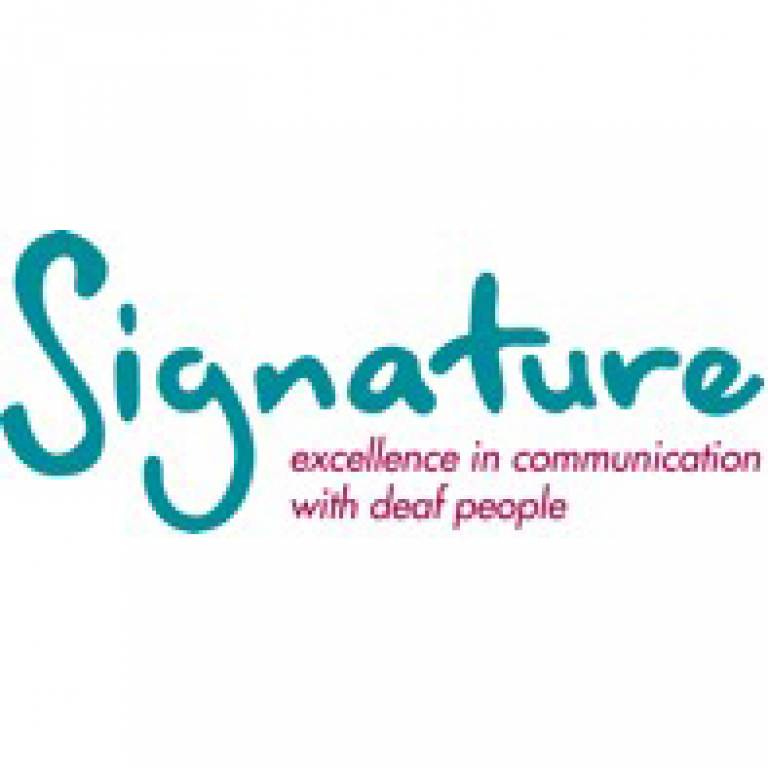UCL recognised for expanding deaf people's access to society
29 September 2009
Links:
 dcal.ucl.ac.uk/" target="_self">DCAL
dcal.ucl.ac.uk/" target="_self">DCAL
UCL has been shortlisted for a national award for its significant contribution towards building a society in which deaf people have full access.
Signature, the qualifications awarding body for signed languages and other methods of communication used by deaf and deafblind people, has shortlisted the Deafness Cognition and Language Research Centre (DCAL) at UCL for an 'Organisational Achievement' award in a national awards scheme launched this year.
The Signature Annual Awards aim to recognise outstanding achievement by those who have made a significant contribution towards a society in which deaf people have full access.
The Organisational Achievement award recognises an organisation in the public, private or voluntary sector which, through leadership or endeavour, has made a significant contribution to achieving a society in which deaf people have full access. The other four categories of award recognise the contribution of individuals to this aim.
DCAL is a world-renowned centre of excellence for research on British Sign Language, with deaf people and Deaf culture firmly at the centre of its work. Its research is centred on the perspective on language and thought that is provided by deaf people's communication. Through its research and activities, the Centre contributes to changing perceptions of Deafness, away from the notion of medical 'deafness' to enable a shift of focus from 'disability' to that of a diverse cultural and linguistic group.
The centre provides a unique perspective on language and thought based on Deaf people's communication. It places sign languages and Deaf people in the centre of the general understanding of how language and communication work within linguistics, psychology and child development.
DCAL's research contributes to the improvement of the daily lives of deaf people, with strong practical lessons for education, health and community services and the centre works hard to get those who can change policy and practice to take these on board.
Alongside the research that DCAL carries out, the centre's commitment to equal access is also borne out by the way it operates as an organisation. The centre's recent activities in this light include:
- coordinating an agreement on involving deaf children in academic research. This was in response to the increasing demand that schools for deaf children are facing for their pupils to be involved in academic research and ensures that everyone takes care in managing their relationships for the benefit of all involved, especially children
- developing a network of deaf and hearing researchers, and in particular building capacity specifically amongst young deaf researchers. The centre has a mentoring system in place whereby Deaf postgraduate students are each paired with a Deaf postdoctoral researcher who acts as a mentor
- launching a competition for young deaf people to tell DCAL what they would like to see deaf research working on in the future. The ideas raised will contribute to DCAL's research in the future
- setting up an alarm system for deaf employees and students at their offices that can act as a good practice example for others.
Signature Chief Executive Jim Edwards, said: "The enthusiasm for the awards really shows that our vision of a society in which deaf people have full access can become a reality. The Signature Annual Awards are about recognising excellence in communications between deaf and hearing people and we're looking forward to sharing these successes at the ceremony in London."
The winners will be announced at a ceremony at London's Crowne Plaza Hotel, St James, on 12 November 2009.
UCL context
DCAL's mission is to study questions about language - its origins, development and processes, by looking at the communication of deaf people. It is the largest research centre in this field in Europe with nearly 40 staff and research students, almost a third of whom are deaf.
Related news
Deaf Awareness Week: UCL develops unique course in British Sign Language
Sign language research on BBC 'See Hear'
 Close
Close

